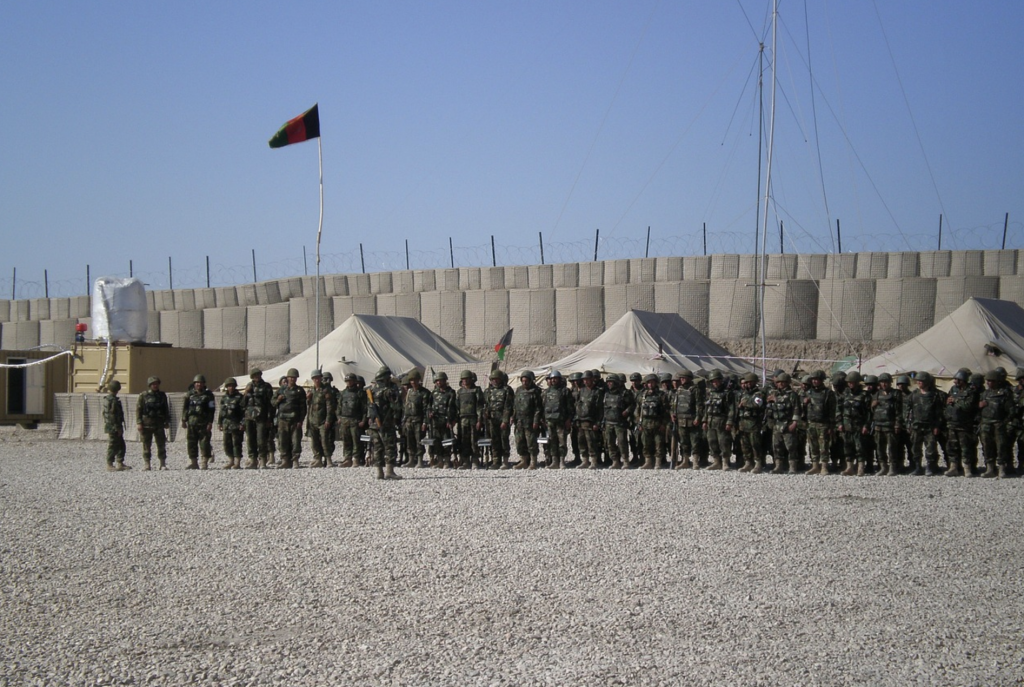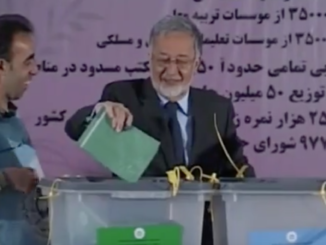
On 19 Nov 2020, Chief of the Australian Defence Force Angus Campbell released the findings of The Brereton Inquiry. The inquiry report, directed at finding the conduct of Australian armed forces in Afghanistan, found credible evidence against 25 special forces soldiers who were involved in the unlawful killing of 39 prisoners, injured or non-combatant Afghans on at least 23 separate occasions, between 2005 and 2016. These summary executions were popularly known as “Blooding” in the Australian armed forces culture, in which “junior soldiers were required and encouraged by the patrol commanders to shoot the prisoner or a civilian, to achieve the soldiers’ first kill”. “Throwdowns” (weapons or devices) were planted near the killed Afghans to add authenticity to the kill and coverup the war crimes committed by the soldiers. The Report took almost four years for completion and involved reviewing 20,000 documents, 25000 images, and interviewing 423 witnesses.
The inquiry was ordered as a result of a report by the military sociologist Dr. Samantha Crompvoets, authored during 2015-16. Dr. Samantha’s work set out to understand the Australian Special Forces culture, reputation, and trust, however, her interviews with the soldiers took a turn in newer directions, involving war crimes. After hundreds of hours of interviews spanned over many months, she delivered a report detailing explicit war crimes allegations, raising questions about the conduct of multiple units within Special Operations Command. This resulted in Brereton Inquiry. Before the findings and 143 recommendations of the inquiry were publicly announced, Australian Prime Minister Scott Morrison called Afghan President Ashraf Ghani to express his “deepest sorrow” over the misconduct of the Australian troops. The PM assured the president that the future criminal investigation into the “allegations” will result in ensuring “justice”. Similarly, Australian Defence Chief General Angus Campbell has apologized to the people of Australia and Afghanistan after the release of the thoroughly redacted version of the Brereton Inquiry Report. The General referred to the conduct as “appalling” and damaging to the Australian Defence Forces’ “moral authority as a military force”.
The war and military histories of the world are full of innovative ways to punish the enemies, brutalize the non-combatants and unarmed civilians, women, children, and the elderly. Blooding in itself, therefore, is not the most novel or a non-existing concept adopted (only) by the Australian special forces. Without delving deep into the ancient brutal histories of the Peloponnesian War, Viking Age, or the Brilliance of Genghis Khan, one can find the reflection of all forms of dehumanizing techniques in modern military history (read Kashmir, for example).
Since the turn of the 20th Century, the history of warfare has been grossly muddied by the unfathomable accounts of murder, rape, torture, pillage, and burn. Relatedly, there is also a disturbing theoretical difficulty caused by the epistemological complexity in understanding the relationship between the practice of war, and the much-touted concepts of human rights, the responsibility to protect, and intervention in alien lands. In this vein, the philosophy of Poststructuralism posits that knowledge comes to be accepted as true on its face value due to the power and dominance of certain actors in (every) society known as elites, who further impose this knowledge on the society including weak, marginalized, silenced and others who are wronged. Elites exist in multiple positions in the society ranging from the executives in the government, ministers, military commanders, and many others involved in the policy formulation and direction to act within the gambit of international relations.
Unfortunately, the elites may also occupy the position and label of being “experts”, within the society, giving them the authority to reinforce the popular (sometimes international) discourses and narratives, resulting in interventions, occupations, attacks, and a war against the weaker countries. The attacks of 11 September 2001 on the USA are an appropriate example of conveying the dominant discourses, instigated by the governmental elites, perpetuated by the media, and reinforced by the Pentagon – the American invasion of Afghanistan and Iraq being the cases in point. Poststructuralists also argue that the political actions are blurred, and fear is over-exposed in the society to create a (sometimes, non-existing) enemy. Resultantly, after the 9/11 attacks, The Binary Discourse coerced many nations to join the American Global War on Terror. Subsequently, the Coalition of the Willing was formed through the elitist narratives against the Axis of Evil, facilitating the invasion of Iraq. Armies from around the globe landed in thousands, to form bases in the Middle East and other parts of Asia including Afghanistan. The application of the prism of international relations in making all these elitist decisions further alienated the “humanity” factor from the calculations, deteriorating the plight of the Afghans, not to mention millions of Syrians and Iraqis.
Militaries have their unique ways of seeing the world, living and operating in it, and making decisions about the world they abode. In the case of Australian Special Forces, General Campbell argued that allegedly “some of the patrols took the law into their own hands”, as a result of which “rules were broken, stories concocted, lies told and prisoners killed”. He further added that “I never have conceived an Australian would be doing this in the modern era”. The deconstruction and reappropriation of the statements made by the general could also be interpreted as, “Australian Special Forces, under the US pressure, were ordered by the ruling elite to join the invasion of Afghanistan. The serious pre-existing recruitment issues in the Australian military, and the dire need to send the troops in support of US invasions, paved the way for undertrained lads ending up in war zone with automatic rapid-firing weapons. The absence of training of the non and junior commissioned officers (leading the patrols) found breathing targets in Afghanistan, who looked like human beings and were also unarmed. To grow these young soldiers into psychotic killers, the patrol leaders capitalized on the opportunity to kill and instigated/encouraged the kill. Consequently, 39 innocent civilians have been counted thus far who were killed. Although I, as the Chief of the Armed Forces (and my predecessors) did order the deployment of these soldiers in Afghanistan, however, I am relieved to transfer the blame for all these actions on the lower ranks (for which ) I feel sorry for the Australian people and am also sorry for the (only known and admitted) 39 Afghanis killed by my soldiers. As a result of this scapegoating, I order the investigation of the criminal charges against the 25 soldiers from Australian Special Forces”.
During the course of the inquiry, it was revealed by the soldiers that the rampant killing of unarmed combatants was widely prevailing in Afghanistan. Some soldiers revealed that “if they didn’t do it, they saw it if they didn’t see it, they knew about it, if they knew about it, they probably were involved in covering it up and letting it back to Canberra”. The further shameful admission in the report also asserts that. “the distorted culture was embraced and amplified by some experienced, charismatic and influential non-commissioned officers and their proteges, who sought to fuse military excellence with ego, elitism, and entitlement”.
The daunting question is what does the magical, and in this case post-mortal and tragically corporeal word, “sorry” mean. What does the word “sorry” mean to the Australian people, an extension of the elitist narrative (maybe?). What does the word “sorry” mean for Afghan President Ashraf Ghani, who is already experiencing sleepless nights post-US-withdrawal? What does the word “sorry” mean to the dead themselves, who were killed for no crime of their own? What does the word “sorry” really mean to the families of the 39 dead, most of whom probably lost the sole breadwinners in one of the most impoverished societies on the globe. “Sorry” really means a lot to the media which will continue to bolster the elitist narratives. “Sorry” would have meant something to the elitist Australians, who used this to erase and correctly re-write the history of the Stolen Generations. The aboriginal children were stolen from their parents so they could be tamed to become a modern human being or “white citizens”. The then Australian Prime Minister Kevin Rudd while apologizing during 2008 said “sorry”, to the Indigenous Australians for stealing their children almost a century earlier (between 1905 and 1967). The same “sorry” elites decided to send some modern human beings, to the alien far-flung lands to tame Afghans, and the soldiers were instigated to kill unarmed civilians, creating an opportunity for the elitists to say yet another “Sorry”.




Be the first to comment